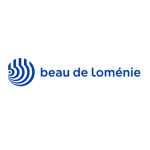The new trademark law implementing the EU Directive has been applicable since December 11 and has introduced important changes.
The requirement of a graphic representation has been abandoned and a new official fees system is applicable to allow filing and renewing for one class only. Absolute grounds for refusal now include appellations of origin, geographical indications, traditional terms for wine, traditional guaranteed specialities and earlier plant variety denominations. Provisions relating to collective trademarks are also amended.
The opposition procedure is available for new prior rights: company names, commercial names, domain names and reputed trademarks.
It is also open to public entities in case there is an attempt on their name, image or repute or if there is a likelihood of confusion for the public. Opposition can also be filed against trademarks filed by an agent or representative without authorisation. Several earlier rights may be invoked in one opposition procedure.
Proof of use is now to be provided for the 5-year period preceding the application date of the opposed trademark and for all goods or services which serve as basis for the opposition.
New provisions relating to invalidity or revocation procedures entered into force on April 1 2020.
The French PTO now has exclusive jurisdiction for actions based on absolute grounds or invalidity for non-use. No interest to act is required from the demanding party. The office shares jurisdiction with courts regarding actions based on relative grounds of invalidity. The courts remain competent when there is a connected issue of unfair competition, and remain exclusively competent regarding infringement actions, and investigative, interim or provisional measures.
The action for invalidity can be based on several grounds and/or rights. However, it is inadmissible if the prior trademark invoked was not used during the five year period preceding the date of the action except if there are proper reasons for non-use. It is also the case if this trademark has been registered for more than five years, and was not used during the five year period preceding the application date of the challenged trademark. Similar provisions apply to reputed trademarks or trademarks for which distinctiveness was acquired through use.
There is no more limitation period attached to invalidity actions, with the exception of actions based on well-known trademarks, for which there is a five year limitation period, except in the case of bad faith. However, in all cases, an invalidity action will be inadmissible if the applicant knew about the later registered trademark and tolerated its use for five years.
The French PTO has been working on the implementation of invalidation procedures by recruiting and training new people. Despite the emergency state brought about by COVID-19, they are available from April 1.












